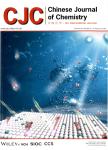Fabrication and Characterization of Sulfonate-containing Polystyrene/CaCO_(3) Core-shell Nanoparticles
Fabrication and Characterization of Sulfonate-containing Polystyrene/CaCO3 Core-shell Nanoparticles作者机构:Department of Chemical EngineeringLaboratory of Advanced Materials of Ministry of EducationTsinghua UniversityBeijing 100084China
出 版 物:《Chinese Journal of Chemistry》 (中国化学(英文版))
年 卷 期:2014年第32卷第7期
页 面:579-584页
核心收录:
学科分类:081704[工学-应用化学] 07[理学] 08[工学] 0817[工学-化学工程与技术] 070305[理学-高分子化学与物理] 080501[工学-材料物理与化学] 0805[工学-材料科学与工程(可授工学、理学学位)] 0703[理学-化学]
基 金:This work is supported by grants from the National Basic Research Program of China(No.2014CB932202)
主 题:core-shell nanoparticles sulfonate emulsion polymerization encapsulation amorphous calcium carbonate
摘 要:Polystyrene(PSt)seed latex was first prepared via soap-free emulsion polymerization in the presence of a small amount of methacrylic acid using ammonium persulfate as initiator,and then seeded emulsion polymerization of sodium 4-styrenesulfonate(NaSS)and St was carried out to synthesize P(St-NaSS)core latex using 2,2 -azobisisobutyronitrile as *** that,P(St-NaSS)/CaCO_(3) core-shell nanoparticles were fabricated by sequentially introducing Ca(OH)_(2) aqueous solution and CO_(2) gas into the core *** morphology of the core and core-shell nanoparticles was characterized by dynamic light scattering(DLS)and transmission electron microscopy(TEM),and the state of CaCO_(3) shell was confirmed with high-resolution scanning transmission electron microscope(HR-STEM)and selected area electron diffraction(SAED).Results showed that PNaSS chains were successfully grafted onto the PSt seed surface,and length of the PNaSS“hairscould be modulated by adjusting NaSS *** groups of the PNaSS hairs served as additives in the formation and stabilization of amorphous CaCO_(3)(ACC)and prevented ACC from sequent transformation into crystalline *** amount of the anchored CaCO_(3) increased with the growth of PNaSS hair length,and reached 51 wt%(by thermalgravimetric analysis)under the optimal encapsulating temperature of 45℃.Moreover,the forming mechanism of P(St-NaSS)/CaCO_(3) coreshell nanoparticles was proposed.



